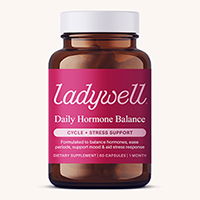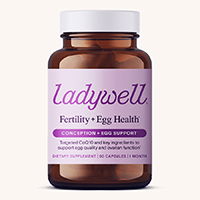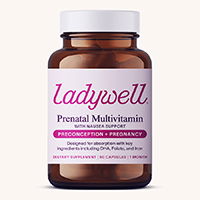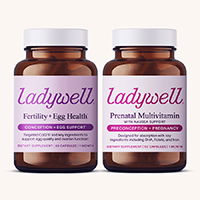Navigating the challenges of perimenopause can feel like an uphill battle, especially when fatigue becomes a constant companion. This transitional phase in a woman's life often brings about a myriad of changes, including hormonal imbalances that can significantly impact energy levels. Understanding these changes is crucial to effectively managing symptoms and finding ways to boost energy levels naturally.
In this guide, we will delve into proven lifestyle changes and natural remedies for fatigue that can help restore vitality and promote overall women's health. With the right approach, including energy-boosting tips and supplements for fatigue, it's possible to alleviate hormonal symptoms and achieve a harmonious hormonal balance.
Understanding Perimenopause and Fatigue
What is Perimenopause?
Perimenopause is the transitional period leading up to menopause, marking the end of a woman's reproductive years. This phase can start as early as a woman's mid-30s and typically lasts until her late 40s or early 50s. During perimenopause, the body's production of estrogen and progesterone becomes irregular, leading to hormonal imbalances.
These imbalances are often responsible for symptoms such as hot flashes, night sweats, mood swings, and notably, fatigue. Fatigue during perimenopause can feel overwhelming, affecting daily activities and overall quality of life. Understanding perimenopause is essential for addressing these symptoms with effective lifestyle changes and natural remedies.
By identifying the signs and symptoms early, women can better manage the challenges of this phase, ultimately promoting sustained energy levels and improved women's health. Recognizing the impact of hormonal shifts is the first step in finding balance and relief from fatigue.
Common Symptoms
Perimenopause often exacerbates the premenstrual syndrome (PMS) symptoms many women experience. Common PMS symptoms include mood swings, irritability, bloating, breast tenderness, and headaches. These symptoms can become more intense and unpredictable during perimenopause due to fluctuating hormone levels. Fatigue is another prevalent symptom, often making daily tasks more challenging.
While these symptoms can vary in severity, they consistently impact a woman's emotional and physical well-being. Understanding these PMS symptoms is crucial for developing strategies to manage them effectively. Lifestyle changes, such as regular exercise, a balanced diet, and stress management techniques, can mitigate the impact of PMS symptoms.
Additionally, natural remedies and supplements for fatigue can provide relief, helping women maintain hormonal balance and improve their quality of life. Recognizing the connection between perimenopause and PMS allows for targeted interventions that address both hormonal and lifestyle factors, fostering a smoother transition during this life stage.
Hormonal Balance in Women's Health
Hormonal balance is a cornerstone of women's health, particularly during perimenopause when the body undergoes significant hormonal fluctuations. Estrogen and progesterone levels shift, impacting various bodily functions and contributing to symptoms such as fatigue and mood changes.
Achieving hormonal balance is crucial for alleviating these symptoms and maintaining overall well-being. Natural remedies for fatigue, such as adaptogenic herbs and specific supplements, can support this balance by regulating hormone production and mitigating stress responses. For instance, ingredients like Ashwagandha and Chasteberry are known for their ability to stabilize hormone levels and enhance energy. Moreover, lifestyle changes including a nutrient-rich diet, regular exercise, and sufficient sleep can promote hormonal balance.
A consistent routine that incorporates these elements can significantly ease the perimenopausal transition, helping women to boost energy levels and manage other symptoms. Understanding hormonal balance empowers women to take proactive steps toward sustained health and vitality.
Lifestyle Changes to Boost Energy Levels
Energy-Boosting Tips
Boosting energy levels during perimenopause involves adopting practical lifestyle changes that enhance overall vitality. First, prioritize a balanced diet rich in whole foods, including plenty of fruits, vegetables, lean proteins, and whole grains. These foods provide essential nutrients that support energy production and hormonal balance. Hydration is equally important, as even mild dehydration can contribute to fatigue.
Incorporate regular physical activity into your routine; activities such as walking, yoga, or swimming can improve stamina and reduce stress. Establish a consistent sleep schedule to ensure adequate rest, as sleep is critical for energy restoration. Mindfulness practices like meditation or deep-breathing exercises can also help manage stress and boost energy.
Finally, consider natural remedies or supplements for fatigue that are specifically designed to support women's health during perimenopause. These strategies collectively foster an environment conducive to increased energy levels, enabling women to navigate perimenopause with greater ease and resilience.

Effective Natural Remedies for Fatigue
Natural remedies for fatigue can play a pivotal role in managing energy levels during perimenopause. Adaptogenic herbs like Ashwagandha and Rhodiola are renowned for their ability to enhance the body's stress response and promote energy balance. These herbs help to stabilize cortisol levels, a hormone that can directly impact fatigue. Additionally, supplements containing B vitamins are essential, as they support energy production and help alleviate symptoms associated with hormonal imbalances.
Magnesium is another critical nutrient that aids in relaxation and energy metabolism. Incorporating these supplements into your daily routine can provide a noticeable boost in vitality. Furthermore, consuming foods rich in antioxidants, such as berries and green leafy vegetables, can reduce oxidative stress and enhance overall well-being. By integrating these natural remedies into a balanced lifestyle, women can effectively combat fatigue and maintain higher energy levels throughout the perimenopausal transition.
Benefits of Supplements for Fatigue
Supplements for fatigue offer substantial benefits, particularly during the perimenopausal phase when hormonal fluctuations can lead to decreased energy levels. These supplements are designed to bridge nutritional gaps and support overall health. Key components include B vitamins, which are vital for energy metabolism and stress reduction. Magnesium is another important element, known for its ability to promote relaxation and support muscle function, thereby alleviating fatigue.
Adaptogens like Ashwagandha enhance the body's resilience to stress, helping to stabilize energy levels throughout the day. Additionally, supplements such as Coenzyme Q10 can improve cellular energy production, providing a natural boost. By integrating these supplements into a daily regimen, women can experience improved stamina and reduced fatigue. This approach not only supports energy levels but also contributes to a balanced hormonal environment, helping women manage the challenges of perimenopause with greater ease and vitality.
Maintaining Hormonal Balance Naturally
Diet and Nutrition Strategies
Diet and nutrition play a critical role in maintaining hormonal balance, especially during perimenopause. A well-rounded diet rich in whole foods can significantly influence hormone regulation and energy levels. Incorporate plenty of fruits and vegetables, which are high in antioxidants and help reduce oxidative stress, supporting overall hormonal health. Healthy fats, such as those found in avocados, nuts, and seeds, are essential for hormone synthesis and balance. Lean proteins provide necessary amino acids that aid in hormone production and muscle maintenance.
Whole grains like quinoa and brown rice supply complex carbohydrates that stabilize blood sugar levels, preventing energy dips. Additionally, foods rich in omega-3 fatty acids, such as salmon and flaxseeds, can reduce inflammation and support mood stability. Limiting processed foods and refined sugars can also prevent hormonal disruptions. By focusing on these nutritional strategies, women can naturally maintain hormonal balance, reduce fatigue, and enhance overall well-being during perimenopause.
Importance of Regular Exercise
Regular exercise is vital for maintaining hormonal balance and managing perimenopausal symptoms. Physical activity helps regulate hormones like estrogen and progesterone, which are crucial during this transitional phase. Exercise increases endorphin levels, improving mood and reducing stress, both of which can otherwise exacerbate fatigue and hormonal imbalances. Engaging in activities such as walking, jogging, yoga, or strength training can enhance metabolism, support weight management, and improve cardiovascular health, all contributing to better energy levels.
Moreover, exercise promotes better sleep quality, which is essential for hormonal health and fatigue reduction. It also helps maintain bone density, reducing the risk of osteoporosis, a concern during and after menopause. Incorporating regular exercise into daily routines provides a holistic approach to managing perimenopausal symptoms, boosting overall health and well-being. By prioritizing physical activity, women can achieve a more balanced hormonal state and a more energized lifestyle during perimenopause.

Mindfulness and Stress Management Techniques
Mindfulness and stress management are essential components in maintaining hormonal balance, particularly during perimenopause. Chronic stress can lead to significant hormonal disruptions, affecting energy levels and overall well-being. Incorporating mindfulness practices such as meditation, deep breathing, or yoga can help mitigate stress by promoting relaxation and reducing cortisol levels. These practices enhance emotional resilience and improve focus, aiding in the management of mood swings and anxiety often associated with hormonal changes.
Mindfulness encourages living in the present moment, which can reduce the emotional burden of stressors and improve mental clarity. Additionally, allocating time for hobbies, spending time in nature, or engaging in regular physical activity can further support stress reduction. By implementing these techniques into daily life, women can cultivate a more balanced hormonal environment, alleviate symptoms of fatigue, and enhance their overall quality of life during the perimenopausal transition. Prioritizing stress management is a proactive step towards sustained health and vitality.


















































